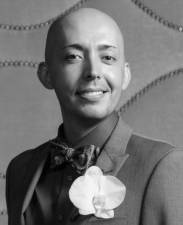
Researcher Profile
Antonio P. Gutierrez de Blume.
Georgia Southern University, United States.
/cloudfront-us-east-1.images.arcpublishing.com/gray/T4TANKHCNVBG5A4LVNTACOH67Y.jpg)
I am a triple graduate of the University of Nevada, Las Vegas (UNLV), having received my BA in Political Science and Sociology (2004) and Master’s (2008) and Ph.D. (2012) in Educational Psychology, Fundamentals of Learning. My areas of expertise are research methods, statistics, and learning and cognition. Previously, I held various positions at the UNLV School of Nursing, including teaching, research, and postdoctoral work. I have over 5 years of experience preparing grant proposals from a variety of funding agencies including the National Institutes of Health, Robert Wood Johnson Foundation, Health Resources and Services Administration, and the United States Occupational Safety and Health Administration. These experiences included: finding suitable grant funding opportunities; preparing budgets and budget justifications; writing the technical aspects of grant proposals (eg, background and significance, objectives, research design and methods, data analysis plan, etc.); and the management of funded projects in collaboration with co-principal investigators. My primary duties during my tenure at the Center for Mathematics, Science, and Engineering Education (CMSEE) consisted of assisting faculty at the Center’s three member colleges — Education, Engineering, and Science — in: finding scholarship opportunities related to STEM and STEM education; prepare technical aspects of grants; budgeting; submission of grants; and management of financed projects.
In my current position as Professor (tenure and promotion awarded as of August 1, 2019; promotion awarded August 1, 2023) in the Department of Curriculum, Foundations, and Reading at Georgia Southern University, I teach research methods and statistics courses and conduct research on the role of motivation training and metacognitive strategies on student performance, trust judgments, and metacomprehension under self-regulated learning theory; the latent dimensions of metacomprehension, as a cognitive construct; and, more recently, how various factors in the academic environment influence faculty members’ intention to stay or leave academia, among several other lines of inquiry.
Links
Google Scholar: https://scholar.google.es/citations?hl=es&user=1wZbNEoAAAAJ
Researchgate: https://www.researchgate.net/profile/Antonio-Gutierrez-De-Blume
ORCID: https://orcid.org/0000-0001-6809-1728
Antonio P. Gutierrez de Blume
I am a triple graduate of the University of Nevada, Las Vegas (UNLV), having received my BA in Political Science and Sociology (2004) and Master’s (2008) and Ph.D. (2012) in Educational Psychology, Fundamentals of Learning.
Diana Marcela Montoya
I am a full-time professor and researcher at the Department of Educational Studies at Caldas University, and the Psychology Program at the University of Manizales (Colombia) since 2009.
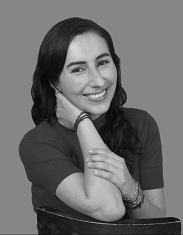
Researcher Profile
Diana Marcela Montoya Londoño.
Universidad de Caldas – Universidad de Manizales, Colombia.
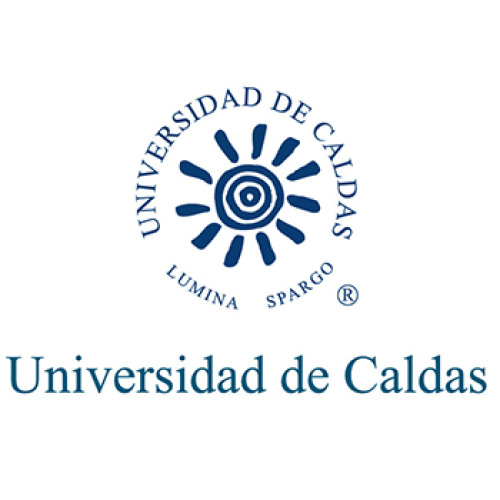 |
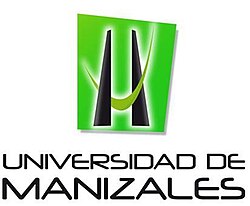 |
I am a full-time professor and researcher at the Department of Educational Studies at Caldas University, and the Psychology Program at the University of Manizales (Colombia) since 2009.
My work is focused in Cognitive Neuropsychology, Clinical Neuropsychology, learning assessment, personality and cognitive self-regulation. Likewise, I work as a visiting professor of different graduate programs in Neuropsychopedagogy, Education and Child Development.
I have a Bachelor degree in Education from the Catholic University of Manizales. Besides, I also got a Bachelor degree in Psychology from the University of Manizales. On the other hand, I have specialized in the fields of University Teaching, a degree that I got at the Catholic University and in the field of Neuropsychopedagogy, a program that I studied at the University of Manizales.
I have a master’s degree in Education with an emphasis in Pedagogical Relationships, a program that I studied at the Universidad Javeriana de Bogotá and the Universidad de Caldas, and also, I have a degree in the field of Neuropsychology, a program that I did at the Universidad San Buenaventura de Medellín.
Finally I have a Ph.D. in Cognitive Sciences from the Autonomous University of Manizales.
My professional experience began as an undergraduate university professor when I was 20 years old.
I have always been linked to different teaching, research and projection activities aimed at the permanent training of teachers and psychologists, in different subjects in which the relationship between the brain and cognition is addressed. Throughout my research activity, I have worked in different fields of study that link assessment and the neuropsychological bases of learning, with a special vocation and love for the study of metacognition and its relationship with different cognitive variables, such as the study of relationships with executive functions.
LINKS:
Google Scholar: https://scholar.google.es/citations?user=kb9wbuMAAAAJ&hl=es&oi=ao
Researchgate: https://www.researchgate.net/profile/Diana-Montoya-11
ORCID: https://orcid.org/0000-0001-8007-0102
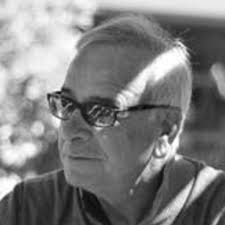
Researcher Profile
Aníbal Puente Ferreras.
Professor Emeritus Universidad Complutense de Madrid, Spain.

From an early age, he was interested in children’s literacy and for this; he entered the La Salle University School where he obtained the degree of Primary Teacher. At the end of this first level of training, he joined as a teacher in a public school to teach children from six to eight years old. The need for training and specialization led him to enter the General Pedagogy career for three years, but he did not complete the activity for reasons of change of residence.
The career that finally seduces him is Educational Psychology with five years of training and experience with children and adolescents with special and diverse educational needs. The Bachelor’s degree is obtained at the Andrés Bello Catholic University (Caracas), directed by the Jesuit Fathers, a university with a strong vocation in social and scientific training. As a psychologist, he discovers the importance of Psychology as a transforming factor of social and human change.
For four years, he works as a Professor of Secondary Education teaching Language and Psychology with adolescents. The Bachelor thesis and the impact of Professor Pitaluga as director of the thesis influenced for almost a decade in his professional work as a shaper of behaviors and contexts following the guidelines and philosophy of Radical Behaviorism. With the purpose of postgraduate training in Behavioral Psychology, he entered a Master’s Program at the Central University of Venezuela with the title “Experimental Analysis of Behavior” with a duration of two years and the defense of the final thesis. Simultaneously start formal courses Master´s Degree in “Behavior Modification” at the Simón Bolívar University in Caracas. Venezuela.
With this solid academic and research background, he obtained a scholarship to enter the doctoral program (PhD) at Tulane University, USA. The entrance to the doctorate opens diverse horizons and more in line with the changes that were occurring in the field of Modern Psychology and therefore decides to change the Behavioral approach for another more Experimental Cognitive.
After completing the doctorate, a significant change began in professional and scientific matters. It moves towards the university field of teaching and research. The Experimental Cognitive model inspires its activity in the Master and Doctorate programs of the various universities in Latin America and Spain. The scientific production phase formally begins with the doctoral thesis in 1983 and with successive productions up to the present time.
The last thirty years, worked as Professor of Basic Psychology at the Complutense University of Madrid (UCM) in the training of Psychologists and Social Workers, focusing on teaching and research in the areas of Language, Reading and Writing, directing two-master’s programs in the Andrés Bello Catholic University (Caracas), the Complutense University of Madrid and the Andrés Bello University (Chile).
Author of books and essays:
Cognitive Psychology (McGraw-Hill), Basic Psychology (Editorial Pirámide), Cognition and Learning (Editorial Pirámide), Creative Brain (Psicología, Alianza Editorial, Pocket Book), Learning and Teaching Styles (CEPE), Reading Comprehension and Teaching Action (FGSR), The Journey of Letters and Reading Problems (Editorial, Biblioteca Nueva), Dyslexia and Dysgraphia (Verbum Foundation Editorial), Attention Deficit and Hyperactivity: Educational and Clinical Intervention (Verbum Foundation Editorial) Origins of Language (Psicología, Alianza Editorial, Pocket Book), Scale of Reading Consciousness (TEST ESCOLA) (EOS) and recently Basic and Applied Contemporary Psychology (Editorial Pirámide), Neuro-learning and Educational Inclusion (Editorial RIL). Author of more than 100 scientific articles published in national and international journals in ISI, Scopus-Database and JCR. Principal investigator in national and international projects. He is currently developing with his team a research project on metacognitive aspects in learning and reading. A consistent line of research for several decades has been Metacognition in the theoretical, methodological, and evaluative aspects.
Links
Google Scholar: https://scholar.google.es/citations?user=raOysM0AAAAJ&hl=es&oi=ao
Researchgate: https://www.researchgate.net/profile/Anibal-Puente
ORCID: https://orcid.org/0000-0003-3994-0553
Anibal Puentes Barrera
From an early age, he was interested in children’s literacy and for this; he entered the La Salle University School where he obtained the degree of Primary Teacher. At the end of this first level of training, he joined as a teacher in a public school to teach children from six to eight years old. The need for training and specialization led him to enter the General Pedagogy career for three years, but he did not complete the activity for reasons of change of residence.
Lilian R. Daset
Psychology and the university continue to be an exciting challenge. Already in childhood I was worried about investigating and seeing what happened when phases were added or removed from a process, of course I did not think of it in these terms, I only put obstacles in the paths of ants or everything on which I could rest my observation and, better even, modify something and stay still to see what would happen with the accidents caused by my German shepherd
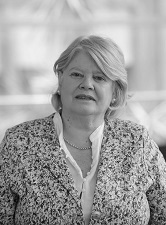
Researcher Profile
Lilian R. Daset.
Professor distinguished.
Department of Psychology/b>
Universidad Catolica del Uruguay
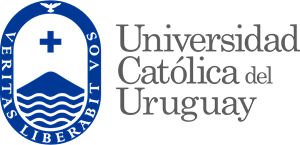
Psychology and the university continue to be an exciting challenge. Already in childhood I was worried about investigating and seeing what happened when phases were added or removed from a process, of course I did not think of it in these terms, I only put obstacles in the paths of ants or everything on which I could rest my observation and, better even, modify something and stay still to see what would happen with the accidents caused by my German shepherd, that I loved, when the variable was honey or sugar, to restart the experiment. But I liked more to know about people, about their lives, to know their stories and their explanations, my grandmother María and my grandfather Felipe were a great source for it, also the great aunts and a large family of uncles, aunts and cousins who did not calm my curiosity or I didn’t.
When I had to choose my profession, mental health was the area and so I became a Psychologist from the Universidad de la República in Uruguay. I did postgraduate studies at the Universidad Católica del Uruguay and over the years I got my doctorate in Psychology at the Universidad de Murcia, Spain. It was a long and beautiful road, not without difficulties, but it does continue to give me great joy.
I have been working for about twenty years in the Childhood and Adolescence Research Line and the Psychological Well-Being Line, from where we developed an Evaluation Protocol, the Adolescent Self-Report (ADA) with an extensive and an abbreviated instrument, and a sociodemographic and habits survey, among contextual and family issues; in which we included resilience and well-being. This took a long time and many instances were crowned by degree, masters and doctoral theses that I have had and still have the honor of directing. It has been all learning and the pleasure of working with dedicated people.
My life was crossed by university management at the undergraduate level, faculty and scientific publications, for which I also studied to learn more about university models, their history and the place of the development of knowledge and research. This is another key topic in an increasingly transversal world and, at the same time, growing specificity… quite a dilemma.
And there has always been a constant: reading and writing, something that takes me to desired or feared worlds. My most formal task is based on scientific communication and supporting the development of academic journals from this southern hemisphere, but without losing sight of the fact that we write more and more for the world. In a less formal exercise, I write fiction whenever I can, a childhood passion that remains with me.
These years, the focus of my attention are the studies on risk factors and protection factors; what makes us sick and what helps us to live better. Thus, the work in psychopathology, personality and on psychological well-being are the axes on which I articulate my works and the deepening of study methodologies in complex areas. This is how I arrive at the difficult lands of evidence-based psychology. And here I am, enchanted by this gaze that enables metacognition and interplay with personality traits.
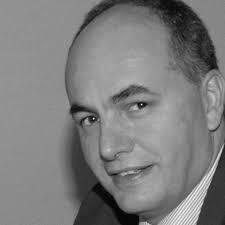
Researcher Profile
Ariel Cuadrado
Department of Neuroscience And Learning
Universidad Católica de Uruguay

I began my academic training with a degree in psychology and from the beginning I was interested in the psychology of learning and in particular in learning disorders. The latter led me to continue my training as a Specialist in Learning Disabilities, then as a Master in Educational Psychology to finally do my doctorate in dyslexia studies in Spanish and a postdoctoral fellowship. I joined early to university teaching and research being at the moment a member of the National System of Researchers and Full Professor in the Department of Neuroscience and Learning, which I currently direct. Studies in disorders in written language and its acquisition led me to training in neuropsychology and then to research in this discipline area, as well as in associated areas such as calculus. The link with academics and professionals in neuropsychology has allowed me to work in networks and to be president of the Latin American Neuropsychology Society. But it has been fundamentally the interest in understanding he processes involved in the learning of reading and writing that has allowed me to develop a line of research in this area, to publish a significant number of articles and books, to direct undergraduate, master’s and doctoral theses, to make presentations at international conferences, as well as to be a consultant to UNESCO and the Organization of Ibero-American States (OEI) for the study of written language programs. Given the reality of our countries in learning, I have been, along with several of my colleagues in the department, concerned about transferring scientific evidence to educational practices, which has allowed us to publish teaching materials, develop a learning method in written language that is implemented in many schools in our country, as well as implement various intervention programs for prevention, improvement and rehabilitation in reading and writing.
The work in teaching and research has been accompanied by academic management tasks as director of undergraduate, graduate, dean, academic vice-rector and participating as evaluator of academic programs in various universities; as well as accreditation processes, research projects and reviewer of academic articles.
.
Links
ORCID: https://orcid.org/0000-0002-4429-9898
Researchgate: https://www.researchgate.net/profile/Ariel-Cuadro-3
Ariel Cuadrado
I began my academic training with a degree in psychology and from the beginning I was interested in the psychology of learning and in particular in learning disorders. The latter led me to continue my training as a Specialist in Learning Disabilities, then as a Master in Educational Psychology to finally do my doctorate in dyslexia studies in Spanish and a postdoctoral fellowship.
